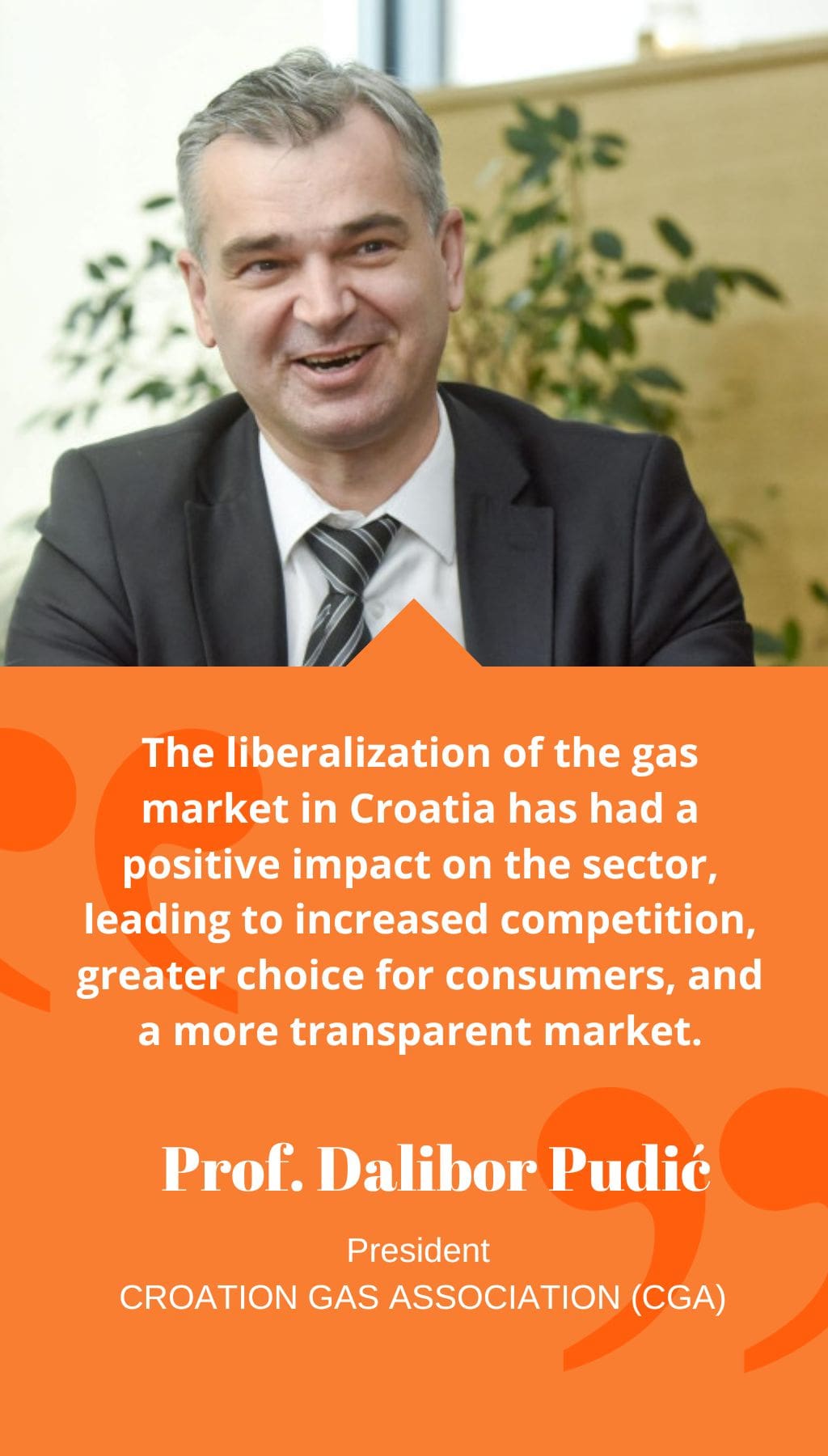
- Croatia | 17 February 2020

Since the liberalization of the gas market in Croatia a few years ago, how has the sector evolved? Has the market structure changed significantly?
The liberalization of the gas market in Croatia has led to several changes in the sector. For one, there has been a noticeable increase in competition among companies, as they are now able to participate more freely based on their commercial interests. This competition has been evident in the emergence of new suppliers on the Croatian wholesale market, as well as the entry of major European suppliers.
Moreover, the liberalization of the market has allowed for the development of new pricing models, which has led to more competitive prices for gas consumers. As a result, consumers have greater choice and are able to select the most cost-effective option for their energy needs.
Additionally, the liberalization has led to an increase in transparency in the gas market. With the emergence of new suppliers, customers are able to compare different offerings and make more informed decisions about their energy consumption.
Overall, the liberalization of the gas market in Croatia has had a positive impact on the sector, leading to increased competition, greater choice for consumers, and a more transparent market.
Could you please elaborate on how the construction of the LNG terminal at Krk Island will impact the local gas market in Croatia?
Certainly. The construction of the LNG terminal at Krk Island is expected to have a significant impact on the local gas market in Croatia. First and foremost, the new terminal will contribute to greater security of gas supply in the country, as it will provide a new route for gas delivery. This will help to diversify the sources of gas supply and reduce the dependence on a single supplier, which is an important factor in ensuring energy security.
Moreover, the increased competition in the gas supply market is expected to lead to a reduction in gas prices in the next period, as has been the case in other EU countries. This is because the LNG terminal will enable the import of gas from various sources, thus creating a more competitive market environment.
In addition to the economic benefits, the operation of the LNG terminal is also expected to provide a great business opportunity for the local domestic industry, as they can participate in and provide additional services related to the operation of the terminal. This will create job opportunities and give a chance to raise educational processes to a higher level.
Overall, the construction of the LNG terminal at Krk Island is expected to have a positive impact on the local gas market in Croatia, both in terms of security of supply, lower prices, and economic development.
In terms of infrastructure, how interconnected is Croatia with neighboring countries in the region? And are there any notable projects currently being developed?
Croatia boasts a well-developed gas infrastructure that includes the construction of the LNG terminal and evacuation pipelines, which will be integrated into the existing transport gas system. Additionally, a compressor station has been built to provide bilateral gas flow to Hungary and Slovenia, fulfilling the EU Directive on natural gas supply security. Plans are also underway to construct an IAP connector to the TAP gas pipeline, which will facilitate the transition towards the EU and enable gasification throughout Croatia. It’s worth noting that infrastructure development will benefit from profitable investments.
How do you see technology contributing to the Croatian energy market? Is there an interest in implementing advanced solutions?
Advanced high energy-efficient technology will undoubtedly play a vital role in our energy market. As we transition towards a low-carbon economy and embrace new paradigms, natural gas will remain a significant energy source, particularly in synergy with renewable energy technologies (RES). Thus, infrastructure must adapt to modern technologies for receiving gas, renewable sources, decentralized generation from CHP, and the utilization of gas in cooling.














